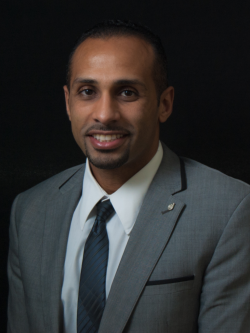Event Date/Time
Location
Please contact the MAE Department for the zoom information.
Series/Event Type
Turbulent compressible flames power our everyday life on earth through the heart of many energy generations and propulsion systems, such as gas turbines, internal combustion, and jet engines. They also power the universe through energy produced in stars, such as in the sun, and in the most powerful explosions known in the universe, supernovae explosions.
High-speed compressible turbulent combustion imposes numerous fundamental challenges driven by significant compressibility effects and strong coupling between exothermic reactions and the turbulent flow. In recent years, the advent of high-speed, high-resolution flame-flow advanced laser diagnostics has allowed the detailed exploration of the reacting flow dynamics in extreme, previously inaccessible regimes characterized by high flow speeds. Such combustion regimes are fundamental to the operation of many modern propulsion applications, from gas-turbine/internal-combustion engines to scramjets and rotating detonation engines (RDEs).
The presentation will overview of a range of phenomena recently discovered in experimental studies of high-speed, compressible, turbulent reacting flows. The topics include intrinsic instabilities of reacting turbulence, flame-scale turbulence production, the onset of catastrophic transitions, spontaneous runaway mechanism of fast turbulent flames, as well as the non-linear compressible combustion regime. Challenges presented by these findings will be discussed based on our fundamental understanding of high-speed compressible turbulent combustion.
Speaker Bio
